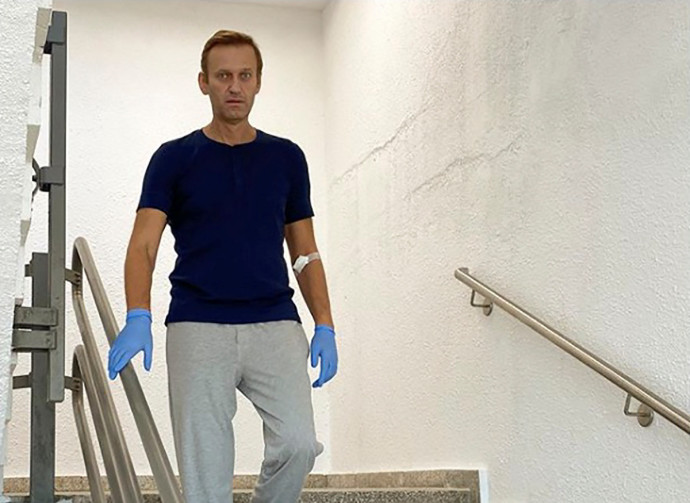Russian opposition leader Alexei Navalny, who was recently sentenced to nine years in a remote prison colony, could potentially be in mortal danger and his communication with anyone from the outside world, even his lawyers, may be severed, according to Vladimir Ashurkov, the director of Navalny's Anti-Corruption Foundation.
"Yes, we are dismayed by the sentence. But we knew that with Putin in power it’s unlikely that Alexei can get out. So it’s important for us to continue our work," Ashurkov told Axios in a Zoom interview from London, where he lives in exile.
"Nobody has any doubt that Russian security services can undertake assassinations in any part of the world. We’ve seen it in Germany, we’ve seen it in the UK. So a Russian prison cell is not a secure place — it’s probably the least secure place." Ashurkov added.
Navalny will now be moved to a more remote facility. It's unclear when or if he will appear in court, or have any communication with his lawyers, who were detained following his latest sentencing.
Navalny, whose organizations have been designated "extremist" groups and banned in Russia, nearly died in August 2020 when he was poisoned with the "Novichok" nerve agent in Siberia.

His team had him evacuated to Berlin where he recovered from the near-fatal attack over a period of several months before finally returning to Moscow on 17 January 2021, where he was immediately arrested.
In the newest charge, Russian courts claimed he had failed to report regularly to police during 2020.
However, Navalny was receiving emergency medical treatment for his poisoning in Berlin and was in a coma for some of that time.
Navalny’s legal team claimed the charge was absurd and that Russian authorities were fully aware he was receiving emergency medical treatment.
"His [Vladimir Putin's] main gripe with me is that he'll go down in history as a poisoner," Navalny told the court scornfully. "We had Alexander the Liberator, Yaroslav the Wise, and we will have Vladimir the Underpants Poisoner."
In response to Navalny's arrest, his supporters staged mass protests across Russia, and police forces responded with force, detaining thousands for attending the so-called “unauthorized” rallies.
Underpants became a social media meme in Russia after Navalny carried out a telephone sting operation in December against a Russian FSB state security agent, who revealed that Novichok, a highly toxic chemical weapon, had been smeared on Navalny's underwear.
Even now, Navalny is still resisting Putin’s regime, calling for protests across Russia against the country's invasion of Ukraine.
Ashurkov expects a new wave of demonstrations to begin in the next few months as sanctions cripple the economy and discontent over the war steadily grows. He believes that will destabilize Putin’s reign and, over time, lead to its demise.
